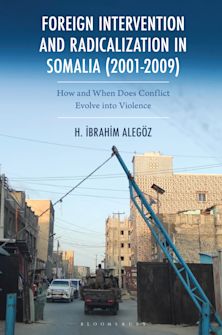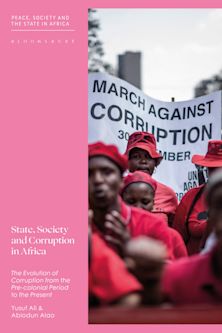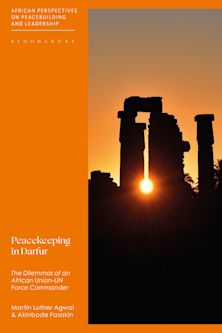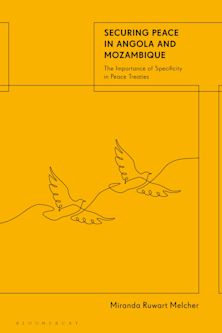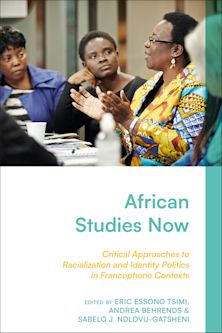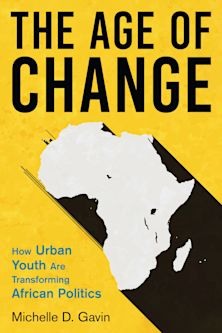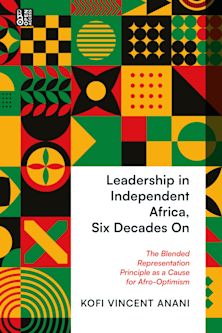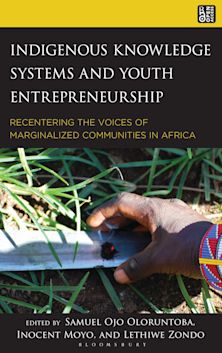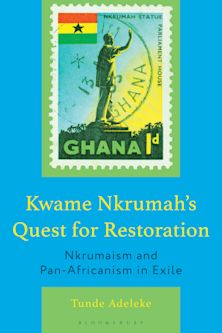- Home
- ACADEMIC
- Politics & International Relations
- African Politics
- Global Jurisprudential Apartheid in the Twenty-First Century
Global Jurisprudential Apartheid in the Twenty-First Century
Universalism and Particularism in International Law
Artwell Nhemachena (Anthology Editor) , Howard Tafara Chitimira (Anthology Editor) , Tapiwa Victor Warikandwa (Anthology Editor) , Samuel Kwesi Amoo (Contributor) , Job Shipululo Amupanda (Contributor) , Oyesola Animashaun (Contributor) , Kingsley Anya Anya (Contributor) , Ndatega Asheela-Shikalepo (Contributor) , Howard Tafara Chitimira (Contributor) , Julius Cosmas (Contributor) , Eric Omo Enakireru (Contributor) , Clifford Kendrick Hlatywayo (Contributor) , Promise Machingo Hlungwani (Contributor) , Itai Kabonga (Contributor) , Liina Kalili (Contributor) , Lizazi Eugene Libebe (Contributor) , Clever Mapaure (Contributor) , Pilisano Harris Masake (Contributor) , Lekunze Joseph Nembo (Contributor) , Fritz Nghiishililwa (Contributor) , Artwell Nhemachena (Contributor) , Brighton Nyagadza (Contributor) , Clemence Rusenga (Contributor) , Luvhengo Usapfa (Contributor) , Tapiwa Victor Warikandwa (Contributor) , Dunia Prince Zongwe (Contributor)
Global Jurisprudential Apartheid in the Twenty-First Century
Universalism and Particularism in International Law
Artwell Nhemachena (Anthology Editor) , Howard Tafara Chitimira (Anthology Editor) , Tapiwa Victor Warikandwa (Anthology Editor) , Samuel Kwesi Amoo (Contributor) , Job Shipululo Amupanda (Contributor) , Oyesola Animashaun (Contributor) , Kingsley Anya Anya (Contributor) , Ndatega Asheela-Shikalepo (Contributor) , Howard Tafara Chitimira (Contributor) , Julius Cosmas (Contributor) , Eric Omo Enakireru (Contributor) , Clifford Kendrick Hlatywayo (Contributor) , Promise Machingo Hlungwani (Contributor) , Itai Kabonga (Contributor) , Liina Kalili (Contributor) , Lizazi Eugene Libebe (Contributor) , Clever Mapaure (Contributor) , Pilisano Harris Masake (Contributor) , Lekunze Joseph Nembo (Contributor) , Fritz Nghiishililwa (Contributor) , Artwell Nhemachena (Contributor) , Brighton Nyagadza (Contributor) , Clemence Rusenga (Contributor) , Luvhengo Usapfa (Contributor) , Tapiwa Victor Warikandwa (Contributor) , Dunia Prince Zongwe (Contributor)
This product is usually dispatched within 2-4 weeks
- Delivery and returns info
-
Flat rate of $10.00 for shipping anywhere in Australia
You must sign in to add this item to your wishlist. Please sign in or create an account
Description
In Global Jurisprudential Apartheid in the Twenty-First Century: Universalism and Particularism in International Law, the contributors argue that the world is witnessing the formation of a global jurisprudential apartheid despite the promotion of democracy, equality, human rights, and humanitarianism. Examining organisations such as international criminal courts, the World Trade Organisation, the United Nations Security Council, the International Monetary Fund, and the World Bank, the contributors unpack the challenges of global jurisprudential apartheid. In particular, they analyse the ways in which these organizations hold and contribute to the increasing inequalities between the Global North and the Global South. Ultimately, Global Jurisprudential Apartheid in the Twenty-First Century shows that globalisation is a variant of the apartheid era particularism and not universalism, working to advantage the Global North while disadvantaging the Global South under the pretense of humanitarianism.
Table of Contents
Artwell Nhemachena, Tapiwa Victor Warikandwa, and Howard Tafara Chitimira
Chapter Two: The Relevance of Jurisprudence as a Course of Study
Samuel Kwesi Amoo and Clever Mapaure
Chapter Three: Decolonisation of Legal Education (Miseducation and Ignorance): Excepts from Afrocentric Perspectives in Southern Africa
Pilisano Haris Masake and Lizazi Eugene Libebe
Chapter Four: The Dangers of Transplanting Transformative Constitutionalism into Namibia
Dunia Prince Zongwe
Chapter Five: African States' Quest for Reclaiming Sovereignty over Natural Resources through Revamping the Legal Framework: A Useful Lesson from Tanzania's Mining Sector
Julius Cosmas
Chapter Six: Crude Oil Exploitation and Environmental Laws as Mechanisms for Protecting Human Rights in African Societies: A Nigerian Perspective
Eric Omo Enakireru and Anya Kingsley Anya
Chapter Seven: The International Criminal Court and Its Targe
Product details
| Published | 27 Sep 2021 |
|---|---|
| Format | Hardback |
| Edition | 1st |
| Extent | 478 |
| ISBN | 9781793643360 |
| Imprint | Lexington Books |
| Dimensions | 229 x 161 mm |
| Publisher | Bloomsbury Publishing |
About the contributors
Reviews
-
In its effort to investigate an under-explored but critical area, the post-colonial global apartheid regime, this book is a monumental work of scholarship. Bringing together an impressive group of African scholars, this book weaves together insights and analyses of almost every manageable post-colonial global apartheid issue, resulting in a thorough and essential guide to African leaders’ ability to address development challenges. In terms of substantive scope, geographic reach, and diversity of insight, it is quite simply staggering. Its analyses of the contemporary legal, political, and socioeconomic challenges facing a number of sub-Saharan African jurisdictions is unsurpassed in originality and rigor. This timely collection will be an essential cornerstone of every law and development scholar’s book collection for many years to come.
Tshepo H. Mongalo, Professor of Law, University of the Witwatersrand
-
What is global jurisprudential apartheid? How are western institutions’ policies on the “rule of law,” “human rights,” and “humanitarianism” employed to increase the divide between the Global North and the Global South? What role do international institutions such as the United Nations play in keeping Africans at the “bottom of the world system”? These are some of the thought-provoking questions addressed in this impressive book of 18 chapters written by 25 African scholars from all over Africa. If you are interested in a new take on universalism and particularism in international law and the role of “transnational criminocrats” on poverty in developing countries, this is the book for you.
Christa Rautenbach, Professor of Law, North-West University
-
A book for Africans written by Africans on the post-colonial legal challenges ranging from international law to environmental and mining issues to customary law practices! Books that focus on African legal traditions within a colonial and post-colonial debate are scarce, and this book is a welcome and timely contribution.
Willemien du Plessis, Professor of Law, North-West University

ONLINE RESOURCES
Bloomsbury Collections
This book is available on Bloomsbury Collections where your library has access.












